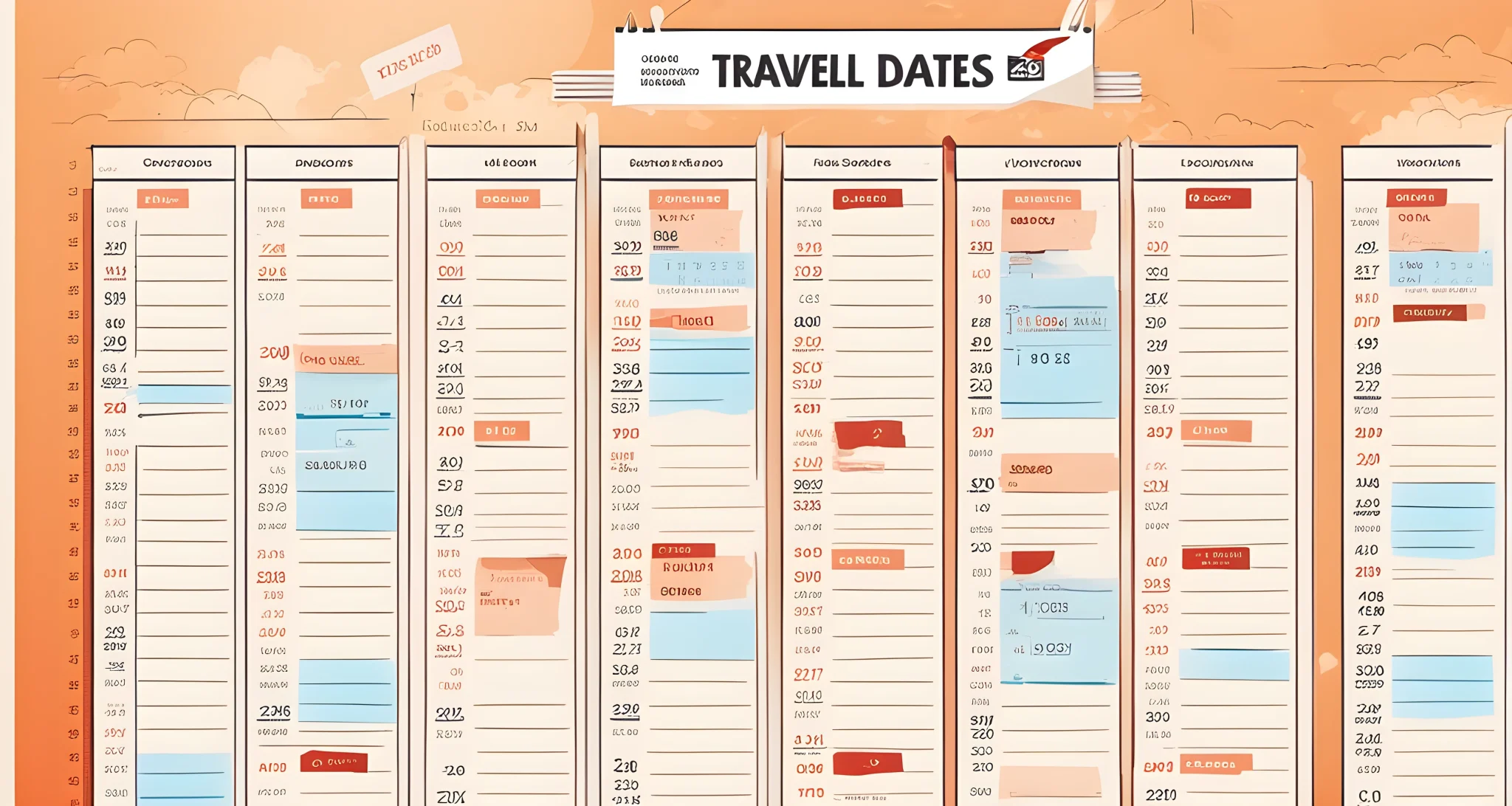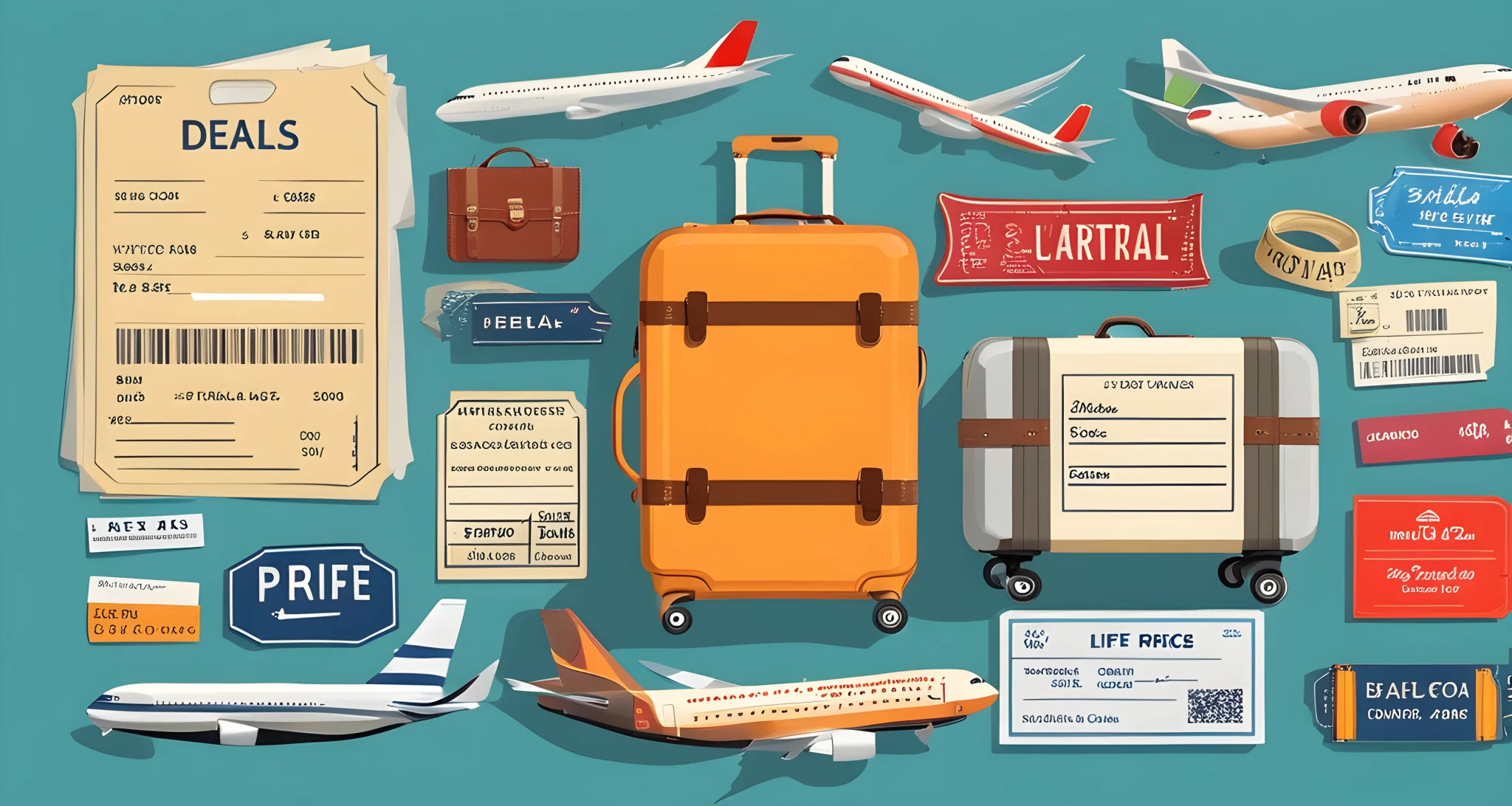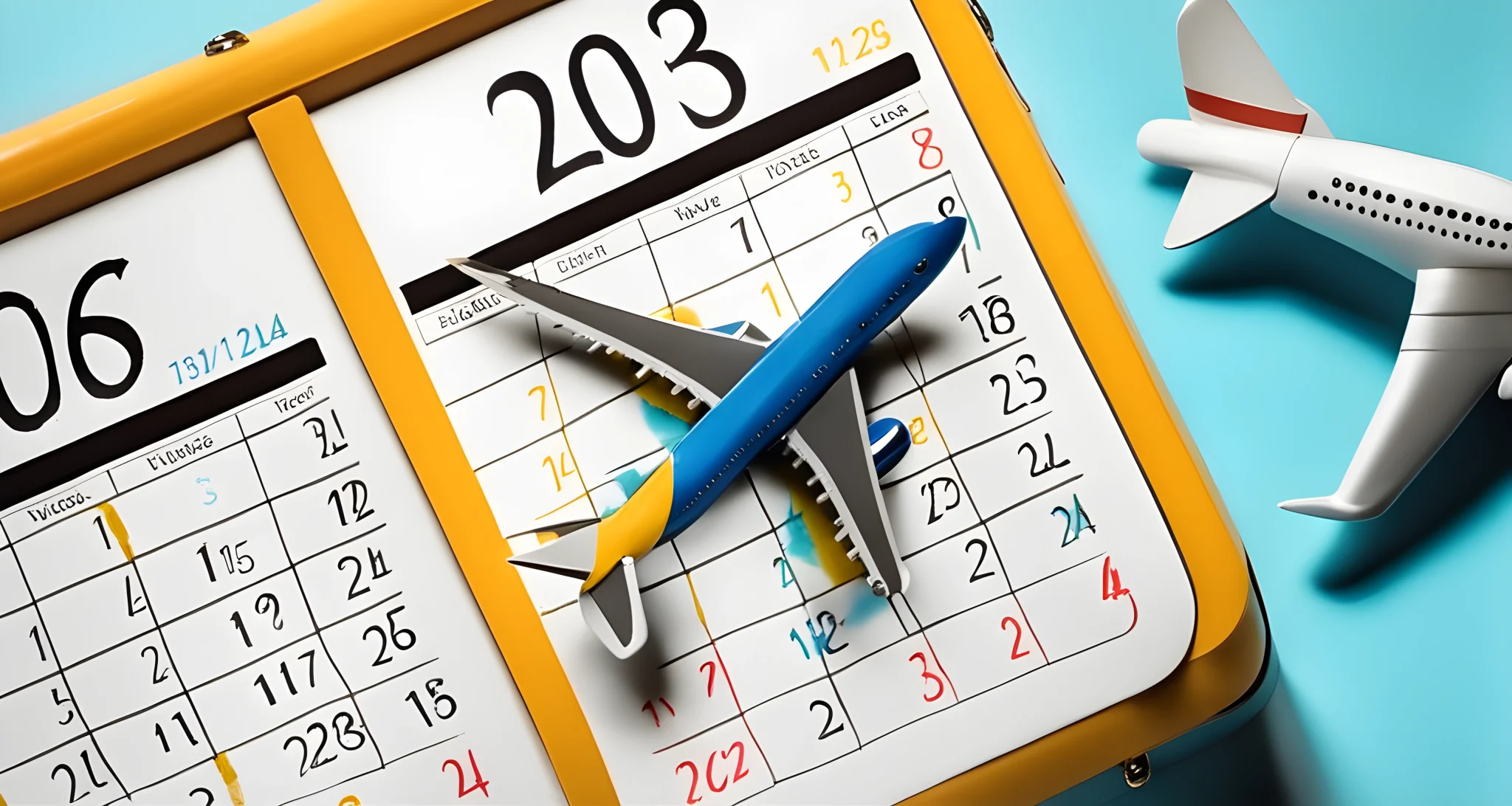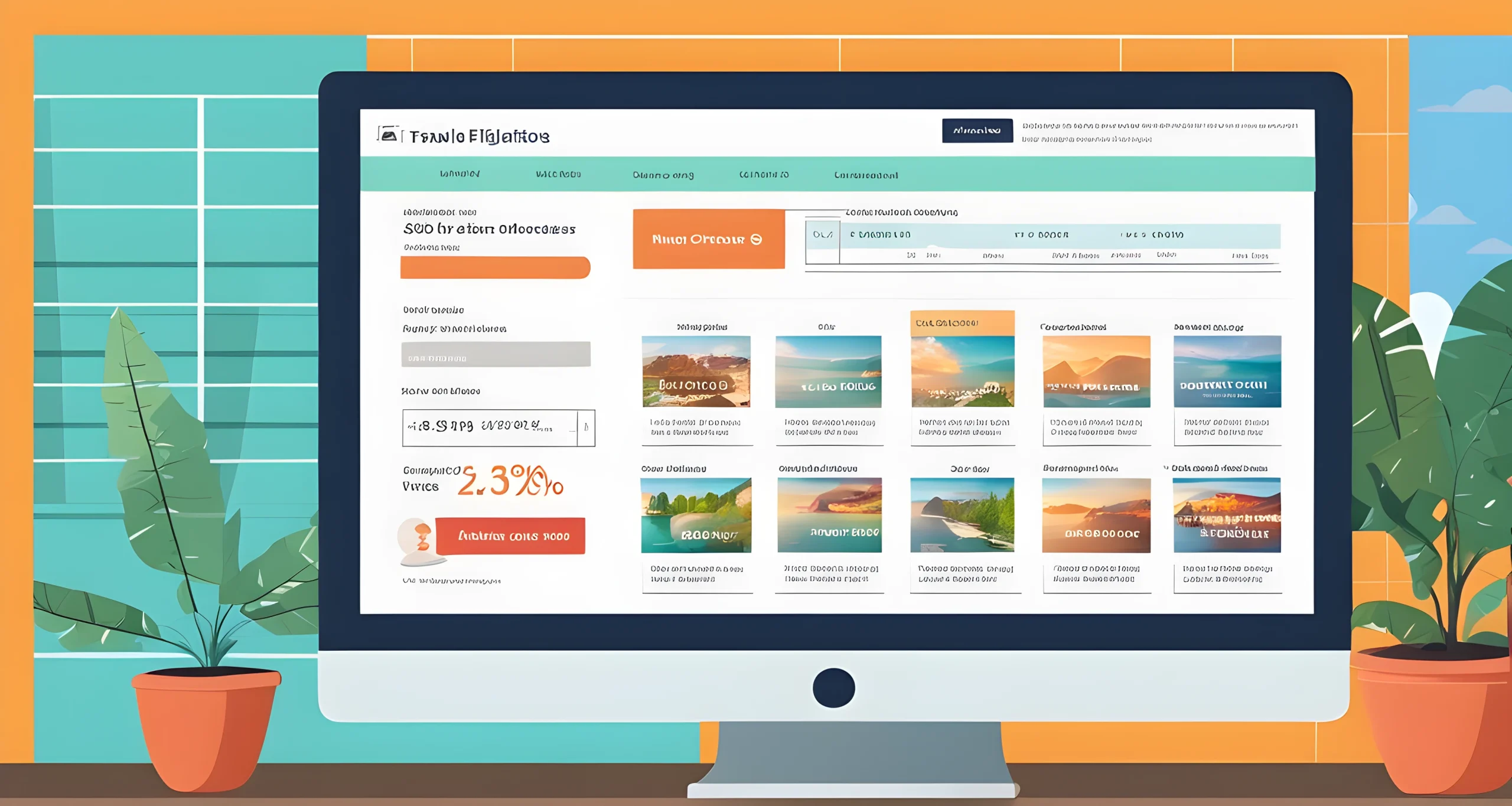Introduction
Welcome to our guide on finding the best travel deals and discounts! If you’re looking to stretch your travel budget and make the most of your trip, you’ve come to the right place. Timing and strategy are key when it comes to securing the best deals, and we’re here to help you navigate through the process.
Understanding Timing and Strategy
When it comes to finding travel deals, timing is everything. By booking in advance, travelers can often take advantage of early bird discounts and promotional offers. Setting up price alerts through various travel websites can also help you keep track of price fluctuations and snag a great deal when it becomes available.
Avoiding Peak Travel Periods
Peak travel periods, such as holidays and school breaks, often come with inflated prices due to high demand. By avoiding these peak periods, travelers can save money and enjoy a more peaceful travel experience. In addition, being flexible with your travel dates can also open up opportunities for better deals.
Key Factors to Consider
- Booking in advance: Take advantage of early bird discounts.
- Setting price alerts: Keep track of price fluctuations.
- Avoiding peak travel periods: Save money by traveling during off-peak times.
- Being flexible with travel dates: Open up opportunities for better deals.
Linking Destinations
For those looking for budget-friendly exotic destinations, be sure to check out our guide on Affordable Exotic Destinations for inspiration on where to plan your next adventure without breaking the bank.
By understanding these elements, travelers can save money and secure better deals. So sit back, relax, and let us guide you through the tips and tricks of finding the best travel deals and discounts.

Factors to Consider When Planning a Budget Trip
When planning a budget trip, there are several key factors to consider that can help you save money and make the most of your travel experience. By carefully considering these factors, you can maximize your travel budget and find the best deals and discounts. Here are some important factors to keep in mind:
Setting Price Alerts
- One effective strategy for securing better deals is to set price alerts using travel search engines like Google Flights, Hopper, Skyscanner, or Kayak. These alerts notify travelers when prices drop, enabling them to rebook and save money. This proactive approach can lead to significant savings on flights and accommodations.
Flexible Travel Dates
- Being flexible with your travel dates can also lead to substantial savings. Budget travel tips suggest that traveling during off-peak seasons or mid-week can result in lower airfares and hotel rates. Additionally, being open to last-minute travel deals can help you take advantage of discounted prices.
Choosing Alternative Airports
- Consider flying into or out of alternative airports near your destination. Smaller airports or those located slightly further away from major cities may offer cheaper flight options. Exploring different arrival and departure points can potentially save you money on airfare.
Researching Accommodation Options
- When it comes to accommodations, consider a variety of options such as budget hotels, hostels, vacation rentals, or even house sitting opportunities. Compare prices and amenities to find the best value for your stay.
Local Transportation Options
- Researching local transportation options at your destination can help you budget for getting around once you arrive. Utilizing public transportation, walking, or biking can be cost-effective alternatives to renting a car or taking taxis.
Meal Planning
- Planning your meals ahead of time can also help you stick to your budget while traveling. Look for affordable dining options such as street food vendors, local markets, or grocery stores. Additionally, consider booking accommodations with kitchen facilities to prepare some of your own meals.
By considering these factors when planning a budget trip, you can make informed decisions that allow you to save money without sacrificing the quality of your travel experience.
By keeping these tips in mind, you can make informed decisions that will allow you to save money without sacrificing the quality of your travel experience.

Creating a Detailed Travel Budget Spreadsheet
When planning a budget trip, one of the most important aspects is creating a detailed travel budget spreadsheet. This will help you keep track of your expenses and ensure that you stay within your budget. Here are some tips to help you create an effective travel budget spreadsheet:
Peak Travel Periods and Off-Season Deals
Peak travel periods often come with higher prices, making it essential to plan trips during the off-season or shoulder season for better deals. By avoiding holidays and summer festivals, travelers can take advantage of lower prices and discounts on flights and accommodations.
Researching Transportation and Accommodation Costs
Start by researching the costs of transportation and accommodation for your chosen destination. Look for deals on flights and hotel rooms, and consider alternative options such as Airbnb or hostels for affordable stays.
Including Daily Expenses
Factor in daily expenses such as meals, transportation within the destination, sightseeing activities, and souvenirs. It’s important to be realistic about how much you will spend each day, so that you can accurately budget for these expenses.
Allocating Funds for Unexpected Costs
It’s always a good idea to set aside some money for unexpected costs or emergencies. Whether it’s a medical expense or a lost passport, having a contingency fund will give you peace of mind during your travels.
Tracking Your Spending
Once you’re on your trip, use your budget spreadsheet to track your spending. This will help you stay on top of your expenses and make adjustments if necessary. You can also use apps or online tools to help you manage your finances while traveling.
Budget European Travel Spots
If you’re considering a trip to Europe on a budget, check out some Budget European travel spots that offer affordable accommodations, dining options, and sightseeing activities.
By creating a detailed travel budget spreadsheet, you can effectively plan and manage your expenses while traveling. This will allow you to make the most of your trip without breaking the bank. Happy travels!
Keep in mind that creating a detailed travel budget spreadsheet is just one step in planning a budget trip. In the next section, we will discuss refining your budget with expense categories to further optimize your travel finances.

Refining Your Budget with Expense Categories
When planning a budget trip, it’s essential to refine your budget with specific expense categories to ensure that you stay within your financial limits. By breaking down your expenses into categories, you can easily track and manage your spending throughout your trip. Here are some tips for refining your budget with expense categories:
Using Price Alerts and Avoiding Peak Travel Periods
- Take Advantage of Sales and Promotions: In addition to using price alerts and avoiding peak travel periods, travelers can also take advantage of sales and promotions offered by airlines and travel websites. Keeping an eye out for low-fare sales and early summer sales can result in significant savings on flights and accommodations.
Tracking Transportation Costs
- Flights: Allocate a specific budget for flights and track prices using price comparison tools. Money-saving travel advice suggests booking flights during off-peak times to save on airfare costs.
- Local Transportation: Consider the cost of local transportation such as taxis, public transit, or rental cars at your destination.
Accommodation Expenses
- Lodging: Research different types of accommodation, including hotels, hostels, or vacation rentals, to find the best value for your budget. Look for deals and promotions on travel websites to save on lodging costs.
Food and Dining
- Meal Budget: Set a daily allowance for meals and plan to eat at budget-friendly restaurants or cook your own meals if staying in accommodations with kitchen facilities.
- Groceries: If you’re staying in a place with cooking facilities, allocate a portion of your budget for groceries to prepare your own meals.
Entertainment and Activities
- Sightseeing: Budget for admission fees to tourist attractions and landmarks that you plan to visit.
- Leisure Activities: Allocate funds for activities such as guided tours, outdoor adventures, or cultural experiences.
Miscellaneous Expenses
- Travel Insurance: Consider adding travel insurance to your budget to protect yourself from unexpected expenses.
- Souvenirs: Set aside a small portion of your budget for souvenirs or gifts.
By refining your budget with expense categories, you can effectively manage your spending while still enjoying a memorable trip. Keep in mind that flexibility is key when it comes to budgeting, so be prepared to adjust your expenses as needed while traveling. With careful planning and tracking of expenses, you can make the most of your travel budget without overspending.

Budgeting by Item or Category
When it comes to budgeting for a trip, breaking down expenses by item or category can help travelers stay organized and on track with their spending. Here are some tips and tricks for budgeting by item or category:
-
Accommodation: Research different types of accommodations such as hotels, hostels, Airbnb, or vacation rentals to find the best deals. Consider staying in less touristy areas or booking mid-week stays for lower rates.
-
Transportation: Look into various transportation options such as flights, trains, buses, or rental cars. Being flexible with travel dates and times can lead to significant savings. Consider using public transportation or walking to get around once at the destination.
-
Food: Plan meals in advance and consider cooking some meals at accommodations instead of eating out for every meal. Look for local markets or grocery stores to purchase affordable food items.
-
Activities: Research free or low-cost activities at the destination such as hiking, visiting parks, or exploring local neighborhoods. Take advantage of discounts for attractions and consider purchasing city passes for multiple attractions.
-
Miscellaneous Expenses: Set aside a budget for unforeseen expenses such as souvenirs, tips, and emergencies. It’s important to have a cushion in the budget for unexpected costs.
When creating a detailed travel budget spreadsheet, it’s important to allocate funds to each category and track expenses throughout the trip. This will help travelers stay within their budget and identify any areas where they may be overspending.
By being open to different destinations and travel periods, travelers can take advantage of lower prices and better deals. Trip budgeting for extended travel is also a great way to save money on long-term trips.
Being flexible with travel plans allows for greater opportunities to save money and secure the best deals. Whether it’s adjusting travel dates, destinations, or accommodation choices, flexibility is key in finding the best travel deals and discounts.
With careful planning and budgeting by item or category, travelers can make the most of their trip without breaking the bank. By keeping track of expenses and being mindful of spending in each category, travelers can ensure that they stick to their budget while still enjoying all that their destination has to offer.

Conclusion
In conclusion, understanding the timing and strategies involved in finding the best travel deals and discounts is crucial for budget-conscious travelers. By booking in advance, setting price alerts, avoiding peak travel periods, and being flexible, travelers can save money and secure better deals on flights and accommodations.
Tips for Finding the Best Travel Deals:
-
Book in Advance: Booking flights and accommodations well in advance can often lead to significant savings. Keep an eye out for early bird discounts and special promotions that are offered by airlines and hotels.
-
Set Price Alerts: Utilize price alert tools provided by online travel agencies or airline websites to monitor fluctuations in ticket prices. This allows travelers to pounce on deals when prices drop.
-
Avoid Peak Travel Periods: Planning trips during off-peak seasons or avoiding major holidays can result in lower prices for flights and accommodations. This also helps to avoid crowds and long lines at popular tourist destinations.
-
Flexibility is Key: Being open to adjusting travel dates or destinations can lead to substantial cost savings. Travelers who are flexible with their plans have a better chance of finding discounted deals.
With these strategies in mind, budget-conscious travelers can make the most of their travel funds and enjoy memorable experiences without breaking the bank.
For more tips on budget travel, check out our article on Affordable street food options that can help you save money while exploring new destinations.
FAQ
When is the best time to book domestic flights?
For domestic flights, it is best to book one to three months in advance to avoid price surges.
What are some recommended travel search engines to find price alerts?
Some recommended travel search engines to set price alerts are google flights, hopper, skyscanner, and kayak.
How can i take advantage of sales and promotions for travel deals?
Keep an eye out for sales and promotions from airlines and travel websites, such as southwest airlines’ low-fare sales or expedia’s early summer sale, to find significant savings.
Why is it important to be flexible with travel plans?
Being flexible with your travel plans allows you to take advantage of better deals, such as booking during off-peak periods or considering different destinations and resorts.
